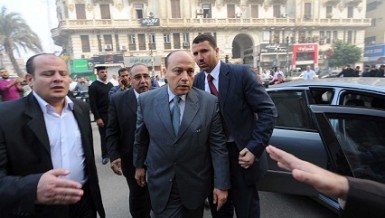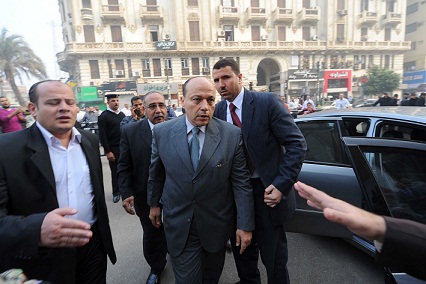
(DNE / Ahmed Al-Malky)
The Egyptian Centre for Economic and Social Rights (ECESR) filed a complaint requesting judicial immunity be lifted from Prosecutor General Tala’at Abdallah and Court of Cassation Chief Justice Mohamed Momtaz Motwali.
ECESR filed the complaint with the Supreme Judiciary Council also headed by Motwali, accusing him and Abdallah of failing to implement the law.
President Mohamed Morsi issued a general pardon in all cases of the revolution but many still find themselves on trial in cases that meet Morsi’s specification. These include the Cabinet building clashes in December or the Suez clashes, the centre said in a Monday statement.
The ECESR legal unit sent several warnings to Motwali, who heads Egypt’s highest court, and Abdallah, asking them to terminate all legal proceedings in such cases but several protesters still find themselves on trial.
In accordance with Article 123 of the Egyptian Penal Code outlining the punishment for officials who do not implement the law, the ECESR is requesting the lifting of judicial immunity from both the prosecutor general and cassation court chief justice so it can take them to trial.
Morsi issued a presidential decree in October granting general amnesty to all prisoners and detainees held from 25 January 2011 until his inauguration on 30 June 2012 for all felonies and misdemeanours committed “in support of the revolution”.
The amnesty included those tried by the military, the Emergency Law Supreme State Security Court, and detainees tried in front of civilian courts.
The revolutionary prisoners in question were expected to be released a month after the pardon. The law necessitates that the prosecutor general and the military prosecutor publish a list of the names of those included in the amnesty in the Waqa’e Masriya newspaper, a supplement of the Official Gazette, as well as in widely-circulating newspapers within a month from the issuance of the law.
However, the ECESR statement said that many of the prisoners still faced trial.


